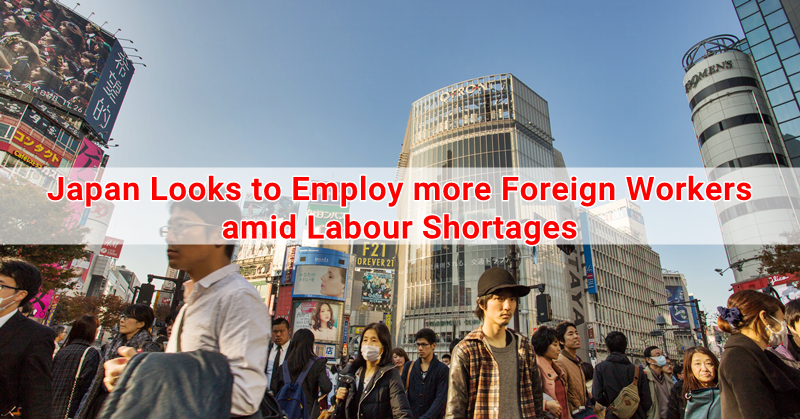Last Tuesday (July 24), Japan had a ministerial meeting which was attended by Prime Minister Shinzo Abe and his cabinet members to discuss the government’s plans to accept more foreign service workers to address the growing issue of labour shortage in the country.
The meeting was centred on the Government’s plan to effectively open Japan’s doors to blue-collared workers in order to supplement the current number of professionals and highly-skilled workers in the country. It can be said that with Japan’s population on the decline, manpower resources among the young have also seen a similar trend for several years already. In 2017, there were 150 job openings for every 100 worker
Japan Aims to Get more Foreign Workers Amid Labour Shortages
The plan had been laid out and was approved by the government last month, as it is now looking to submit a bill to revise Japan’s immigration law at an extraordinary Diet session which is expected to be held sometime in autumn.
Before introducing the new bill, however, the Government has to identify which industries or labour sectors will be eligible to offer menial jobs to foreign workers and to eliminate the potential for (immigration) abuse of the said framework.
The new plan sanctions the approval of a new visa status for foreign workers that will be valid for up to five years. However, these workers will not be specifically allowed to bring their families into the country.
The new type of service workers will be assigned to fill posts mainly in small- to medium-sized enterprises/companies (SMEs), as well as the nursing care and agricultural sectors.
The new workers will be screened to ensure that they meet specific conditions and requirements, which include passing the Japanese Language Proficiency Tests (JLPT). However, for those who have undergone technical training in the country for at least three (3) years, this requirement shall no longer be imposed.
The top 5 sectors which have been initially identified to greatly benefit from the new plan include agriculture, construction, nursing care, hotel and shipbuilding. However, the new framework is also expected to cover the manufacturing and fishing industries.
With the approval of the new system, the Government is hoping to ease the burden of scarce labour which has a direct effect on the overall growth of Japan’s economy.

2 thoughts on “Japan Looks to Employ more Foreign Workers amid Labour Shortages”